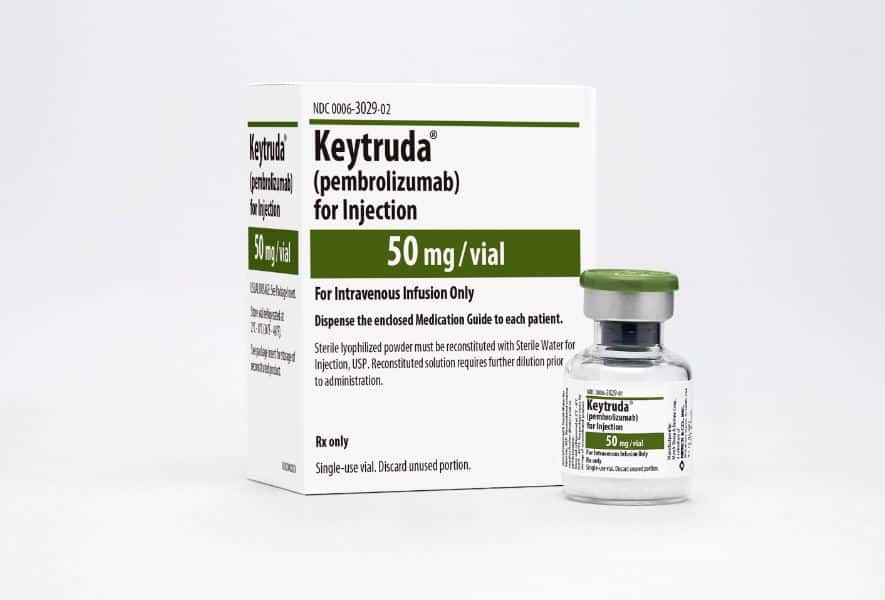
Merck and Eisai partner on cancer therapy trial
pharmafile | March 6, 2015 | News story | Research and Development, Sales and Marketing | Bayer, Cancer, FDA, Halaven, Lenvima, Merck, Stivarga, keytruda, oncology, pd1
Merck and Eisai are teaming up for collaborative trials to test the effects of using combinations of each company’s oncology drugs.
They are to test Merck’s anti-PD1 cancer treatment Keytruda (pembrolizumab) in combination with Lenvima (lenvatinib mesylate) and Halaven (ribulin mesylate) in multiple types of cancer.
The studies will be multicentre Phase Ib/II studies of Keytruda plus Lenvima in people with solid tumours, and Halaven and Keytruda in people with triple-negative breast cancer. Expected to begin in the second half of this year, the trials are to gauge the potential efficacy and safety of these combinations.
The announcement comes just days after oncology rivals Bristol-Myers Squibb beat Merck to become the first company to receive an FDA approval for an anti-PD1 cancer treatment, when Opdivo (nivolumab) gained the OK for non-small cell lung cancer. Merck now faces the challenge of finding other routes to make it to market first.
“This collaboration could be a major step in the direction of developing combination regimens in different types of cancer, potentially maximising their value,” says Kenichi Nomoto, who is president of oncology product creation unit at Eisai.
“Together, Eisai and Merck seek to explore combination regimens that have the potential to create synergistic effects. Our hope is that we will bring treatments to market that make a difference in the lives of people battling cancer.”
“Cancer is a complex disease that often requires different approaches to help patients achieve the best possible outcome,” says Dr Eric Rubin, therapeutic area head, oncology early-stage development at Merck. “The collaboration with Eisai exemplifies our focus on advancing breakthrough science in immuno-oncology.”
Bayer scraps cancer trial
In other cancer news Bayer has scrapped a Phase III trial of Stivarga (regorafenib) in colorectal cancer, after failing to recruit enough patients. The trial had been looking at Stivarga as an adjuvant treatment for colorectal cancer in patients who had already had surgery.
In a statement the German firm says: “As a result of slow patient accrual, the study will be closed to further enrolment before the study endpoints can be assessed. Importantly, there were no new safety signals from the study.”
Dr Joerg Moeller, who is member of the Bayer healthcare executive committee and head of global development, says: “We are disappointed that the extensive measures to increase recruitment did not have the desired outcome. We would like to thank the patients and the study investigators for their contributions and participation in this study.
“Importantly, this decision does not affect our commitment for Stivarga in the approved as well as potential additional indications. We will continue to evaluate it in a number of tumour types with significant unmet medical needs, including colorectal cancer.”
Lilian Anekwe
Related Content

GSK’s Jemperli accepted for FDA review for endometrial cancer treatment
GSK has announced that the US Food and Drug Administration (FDA) has accepted its supplemental …

FDA approves ImmunityBio’s Anktiva bladder cancer treatment
ImmunityBio has announced that the US Food and Drug Administration (FDA) has approved Anktiva (N-803, …

Roche’s Alecensa approved by FDA as lung cancer treatment
Roche has announced that the US Food and Drug Administration (FDA) has approved Alecensa (alectinib) …






